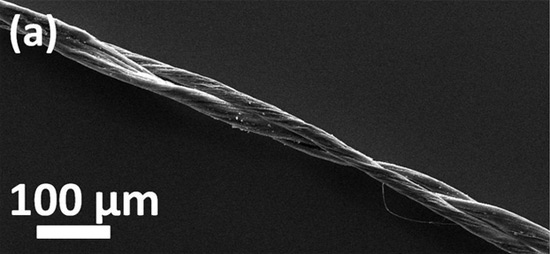Carbon nanotubes ready for use in electronics
Researchers from Rice University in Houston demonstrated a sample of a cable made of nanotubes (pictured) capable of passing a current of density 10 4 ~ 10 5 A / cm 2 . At the same thickness and unlimited length, a cable made of nanotubes is about six times lighter than copper, it does not heat up and does not corrode.

It seems that the use of carbon nanotubes as conductors is the most logical use of them, because these ultra-strong structures with unique electronic properties seem to be ideal for creating cables. But in fact, since the 80s, scientists have never been able to connect individual nanotubes in such a way that a cable with electrical conductivity of at least copper is obtained.
')
Cables made from carbon nanotubes can be used in electrical structures that are sensitive to weight, for example, in automotive and avionics electronics. As production becomes cheaper, their scope of application may be expanded.

It seems that the use of carbon nanotubes as conductors is the most logical use of them, because these ultra-strong structures with unique electronic properties seem to be ideal for creating cables. But in fact, since the 80s, scientists have never been able to connect individual nanotubes in such a way that a cable with electrical conductivity of at least copper is obtained.
')
Cables made from carbon nanotubes can be used in electrical structures that are sensitive to weight, for example, in automotive and avionics electronics. As production becomes cheaper, their scope of application may be expanded.
Source: https://habr.com/ru/post/129083/
All Articles